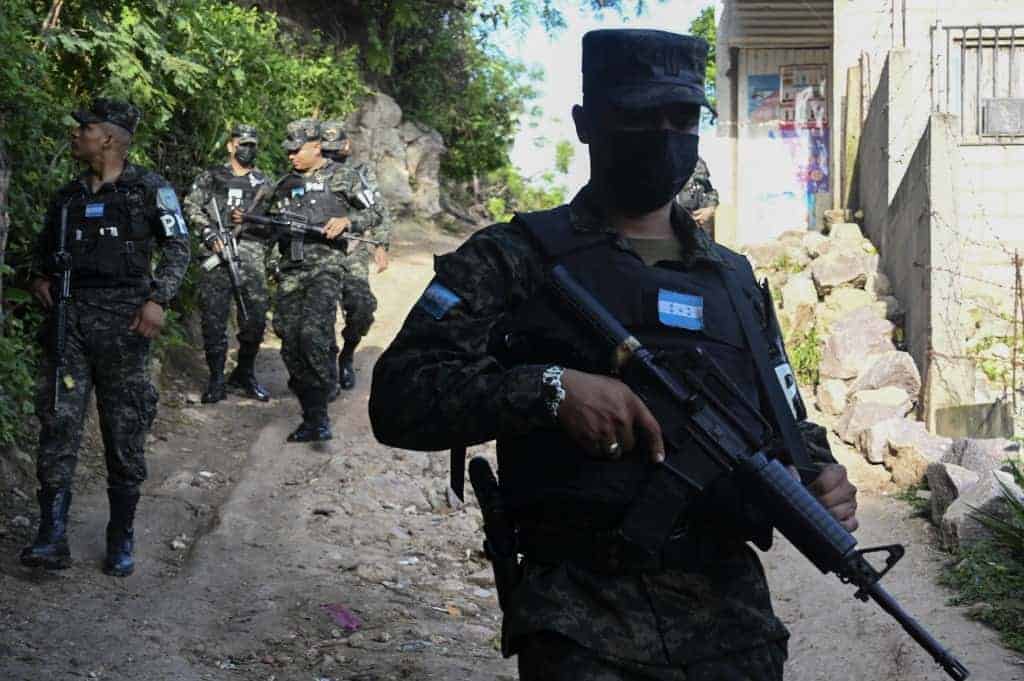Some 200 military police took control Wednesday of a shantytown in the Honduran capital where gang members were forcing residents out of their homes to occupy them, authorities said.
Armed with long weapons and moving in all-terrain vehicles, the members of the Military Police of Public Order (PMOP) patrolled the streets between the hillsides with concrete and iron walled houses in the Villanueva neighborhood, east of the capital.
“In response to information from citizens, who stated that they were being forced to abandon their homes as a result of threats from criminals, the command of the Military Police of Public Order (PMOP) instructed more than 200 elements to provide security to this sector,” said a statement from the Security Secretariat.
The troops will be “permanently in the sector keeping the area under surveillance and carrying out preventive actions,” it added.
On Tuesday, videos circulated on social networks of neighbors loading their belongings into trucks to flee their homes, after gang members gave them an ultimatum of hours to vacate them.
Gang members subdue the population in the outskirts of cities in Honduras and neighboring El Salvador and Guatemala.
The police operation also aims to capture the “gang members who intimidated the residents of this neighborhood,” said the Security Secretariat.
During patrols, police officers searched vehicles and suspicious persons were made to remove their shirts to see if they had gang tattoos.
Although many groups operate, the most feared are members of the Barrio-18 gang and the Mara Salvatrucha (MS-13), which were born in the 1980s in Los Angeles neighborhoods in the United States, but later spread to northern Central America.
The members of the drug cartels, who supply the US cocaine market from South America, together with the gang members, have the three countries of the so-called Northern Triangle of Central America with high homicide rates.
According to the director of the National University’s Violence Observatory, Migdonia Ayestas, Honduras, with 10 million inhabitants, registers more than ten homicides per day.
“Between January and July, more than 2,400 violent deaths were registered,” she said.
The police recorded a rate of 18.47 homicides per 100,000 inhabitants in the first semester (in total, 1,847), with a projection of 37 for the whole of 2022, lower than the 2021 rate of 42.






